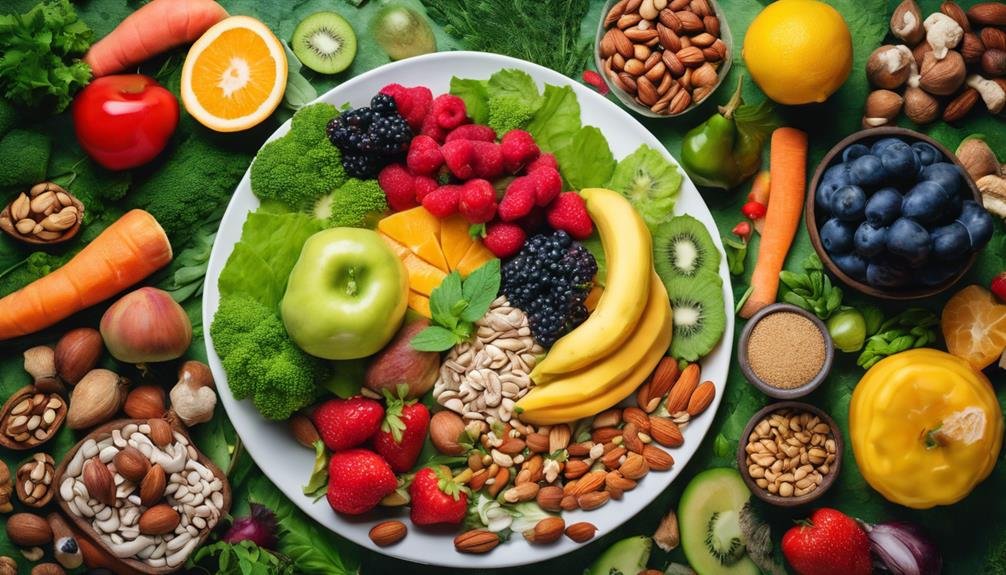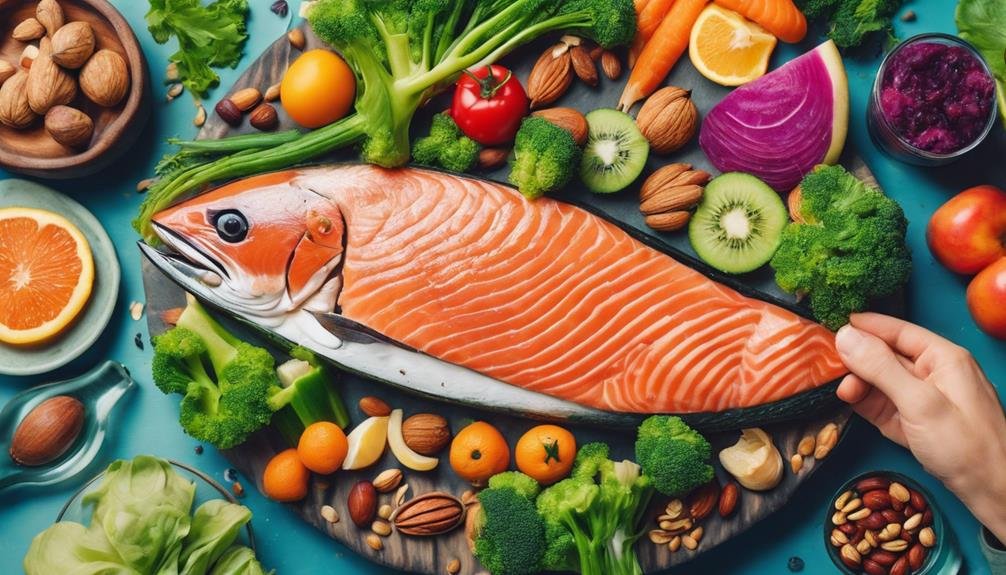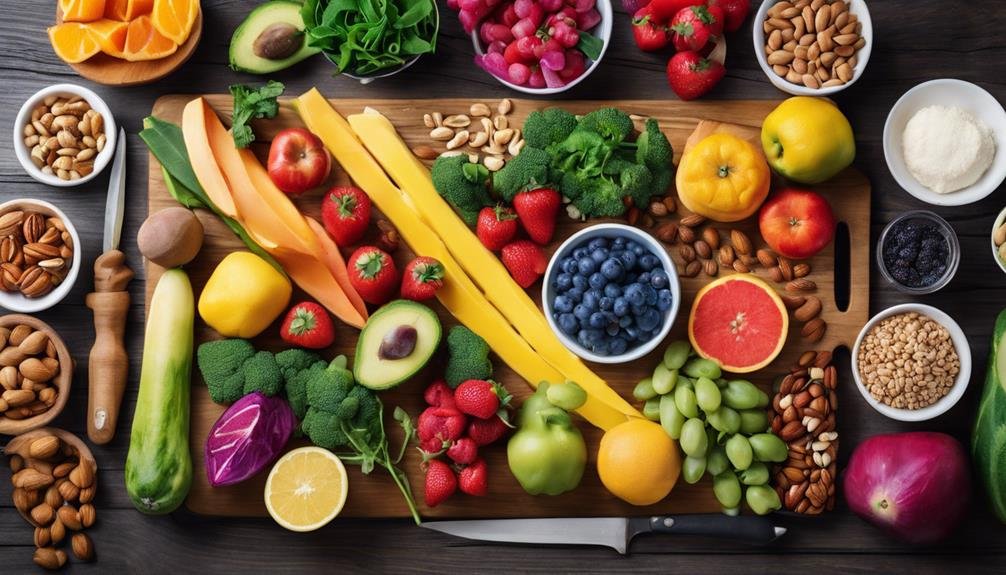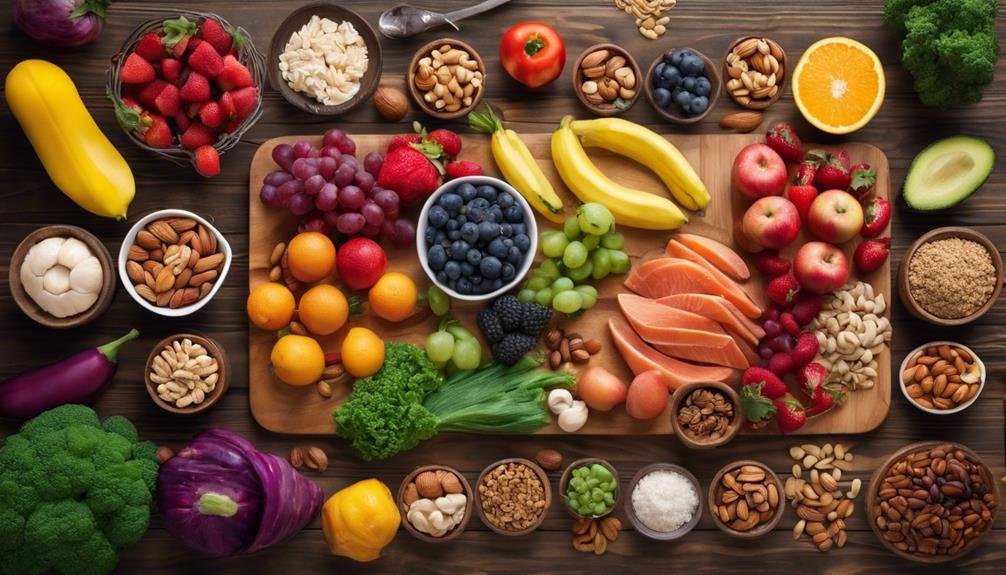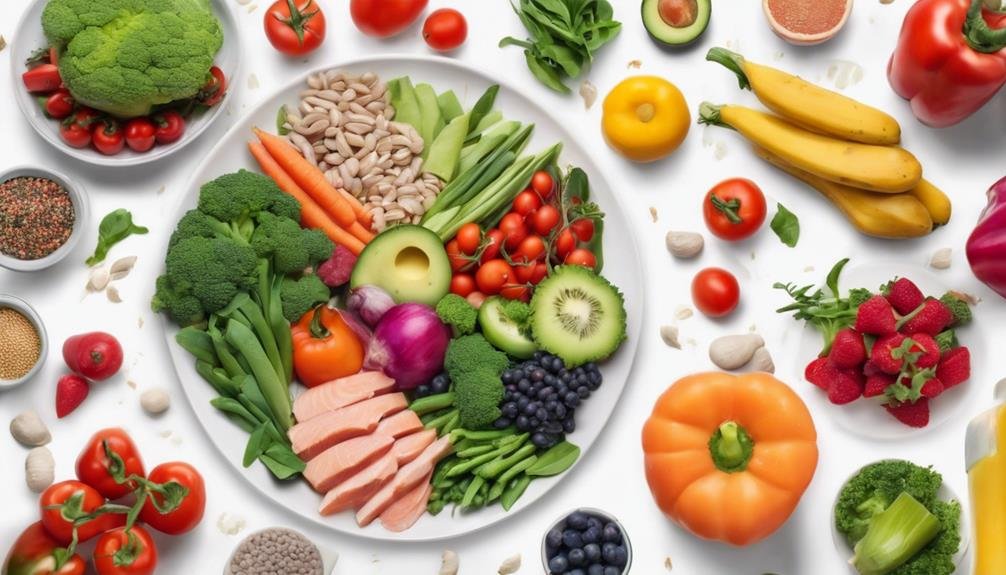Did you know that according to the World Health Organization, cancer is one of the leading causes of death worldwide, accounting for nearly 10 million fatalities annually? The Paleo Diet offers a compelling perspective on how natural, whole foods can play a pivotal role in cancer prevention. By exploring the relationship between diet and cancer risk, you'll uncover the science behind how specific dietary choices can potentially shield your body from the development and progression of cancer.
Origins of the Paleo Diet
The origins of the Paleo Diet can be traced back to the evolutionary principles of our ancestors. This diet is based on the belief that our bodies are best suited to the foods that early humans consumed during the Paleolithic era. By focusing on whole, unprocessed foods such as lean meats, fish, fruits, vegetables, nuts, and seeds, the Paleo Diet aims to mirror the diet of our hunter-gatherer predecessors.
Research suggests that this diet may offer numerous health benefits, including weight loss, improved blood sugar control, and enhanced heart health. The emphasis on nutrient-dense foods rich in vitamins, minerals, and antioxidants can support overall well-being and reduce the risk of chronic diseases.
While critics argue that the Paleo Diet may be restrictive and lack certain essential nutrients, proponents highlight its potential to reduce inflammation, stabilize blood sugar levels, and support a healthy gut microbiome. Ultimately, understanding the evolutionary roots of the Paleo Diet can provide valuable insights into how our modern eating habits may impact our health.
Understanding Cancer Development
Origins of the Paleo Diet have introduced the concept of eating in alignment with our ancestral dietary patterns. Understanding cancer development involves recognizing that cancer arises from genetic mutations that lead to uncontrolled cell growth. These mutations can be triggered by various factors, including environmental exposures, lifestyle choices, and genetic predispositions.
The process of cancer development is complex and involves multiple stages, starting from the initial mutation to the formation of a tumor and potential metastasis.
Cells in our body have mechanisms to repair damaged DNA and prevent the proliferation of abnormal cells. However, when these mechanisms fail, cancer can develop. It's essential to understand that cancer isn't a single disease but a group of diseases with diverse causes and manifestations.
Inflammation and Cancer Risk
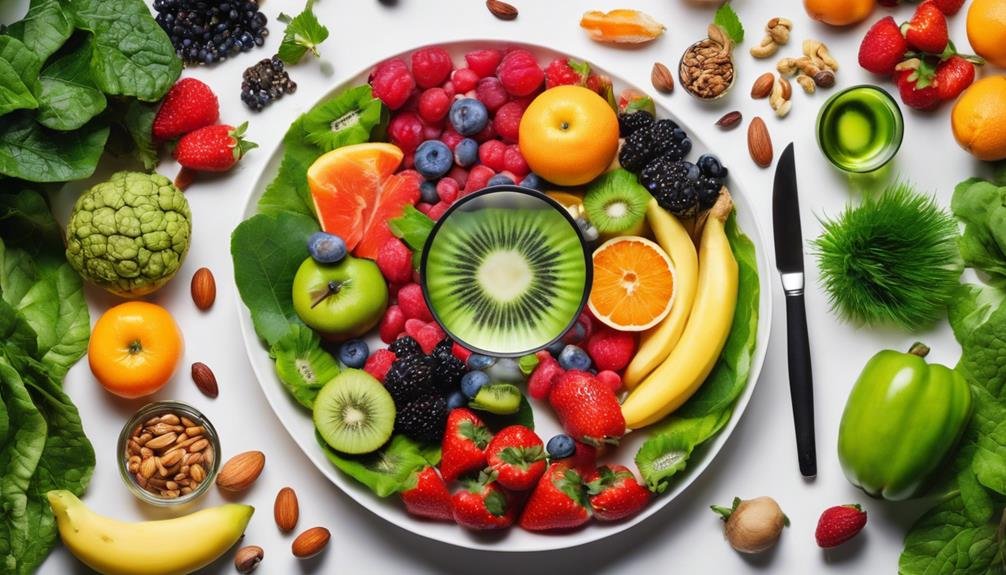
Amidst the intricate web of factors influencing cancer development, inflammation emerges as a critical player in the realm of cancer risk. Chronic inflammation, often triggered by environmental factors, infections, or lifestyle choices, can contribute to DNA damage, cell proliferation, and immune system dysregulation, all of which are key processes in cancer formation.
Inflammation can create a microenvironment that supports tumor growth and metastasis, making it a significant factor in cancer progression.
Research suggests that adopting an anti-inflammatory diet, like the Paleo diet, may help mitigate cancer risk by reducing inflammation levels in the body. Foods rich in antioxidants, omega-3 fatty acids, and phytonutrients found in the Paleo diet can help combat inflammation and promote overall health.
The Role of Nutrient-Dense Foods
Emerging evidence underscores the significance of nutrient-dense foods in shaping the body's response to inflammation, a key driver of cancer development. These foods play a crucial role in supporting your body's natural defense mechanisms against cancer.
Here are four key ways in which nutrient-dense foods can help protect you:
- Anti-Inflammatory Properties: Nutrient-dense foods such as leafy greens, berries, and fatty fish contain high levels of anti-inflammatory compounds, which can help reduce inflammation in the body.
- Antioxidant Protection: Certain nutrient-dense foods like colorful fruits and vegetables are rich in antioxidants, which combat harmful free radicals that can lead to cell damage and cancer development.
- Immune System Support: Foods rich in essential nutrients like vitamins A, C, and E, as well as zinc and selenium, help strengthen your immune system, enabling it to better fight off cancer cells.
- Healthy Microbiome: Nutrient-dense foods like fermented vegetables and prebiotic-rich foods support a healthy gut microbiome, which plays a vital role in immune function and inflammation regulation.
Phytochemicals and Antioxidants
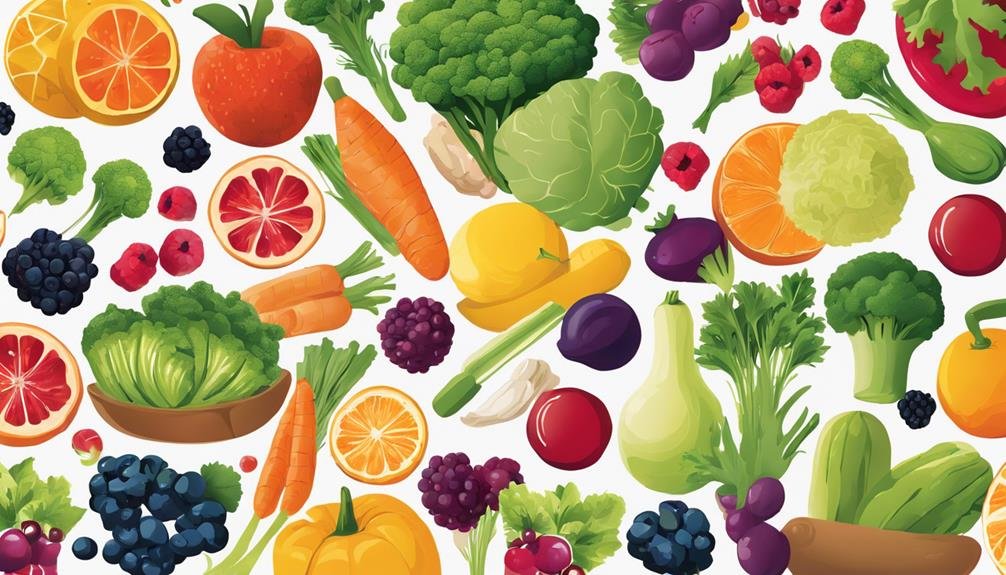
Within the realm of nutrition and its impact on cancer prevention, the focus often shifts towards the role of phytochemicals and antioxidants. Phytochemicals are naturally occurring compounds found in plant-based foods such as fruits, vegetables, nuts, and seeds. These compounds have been shown to possess antioxidant and anti-inflammatory properties that can help protect cells from damage that may lead to cancer development.
Antioxidants, on the other hand, are molecules that can neutralize free radicals in the body, which are unstable molecules that can cause cellular damage and potentially lead to cancer. By consuming a diet rich in phytochemicals and antioxidants, you're providing your body with the necessary tools to combat oxidative stress and inflammation, both of which are linked to cancer development.
Including a variety of colorful fruits and vegetables, nuts, seeds, and herbs in your Paleo diet can ensure that you're getting a good intake of phytochemicals and antioxidants that may help reduce your risk of cancer. Remember, a diverse and balanced diet is key to reaping the benefits of these natural cancer-fighting compounds.
Gut Health and Immunity
A crucial aspect of the Paleo diet that impacts cancer prevention is its influence on gut health and immunity.
- Promoting a Diverse Microbiome: The Paleo diet, rich in fruits, vegetables, and lean proteins, fosters the growth of beneficial gut bacteria, which play a vital role in supporting overall immune function.
- Reducing Inflammation: By eliminating processed foods and refined sugars, the Paleo diet helps lower inflammation levels in the gut. Chronic inflammation is linked to an increased risk of cancer development.
- Enhancing Nutrient Absorption: The emphasis on whole foods in the Paleo diet ensures that the gut absorbs essential nutrients efficiently. Nutrients like vitamins, minerals, and antioxidants are crucial for maintaining a robust immune system.
- Supporting Immune Cell Function: The Paleo diet provides the necessary nutrients for immune cells to function optimally, helping the body recognize and eliminate cancerous cells more effectively.
Reducing Carcinogenic Factors
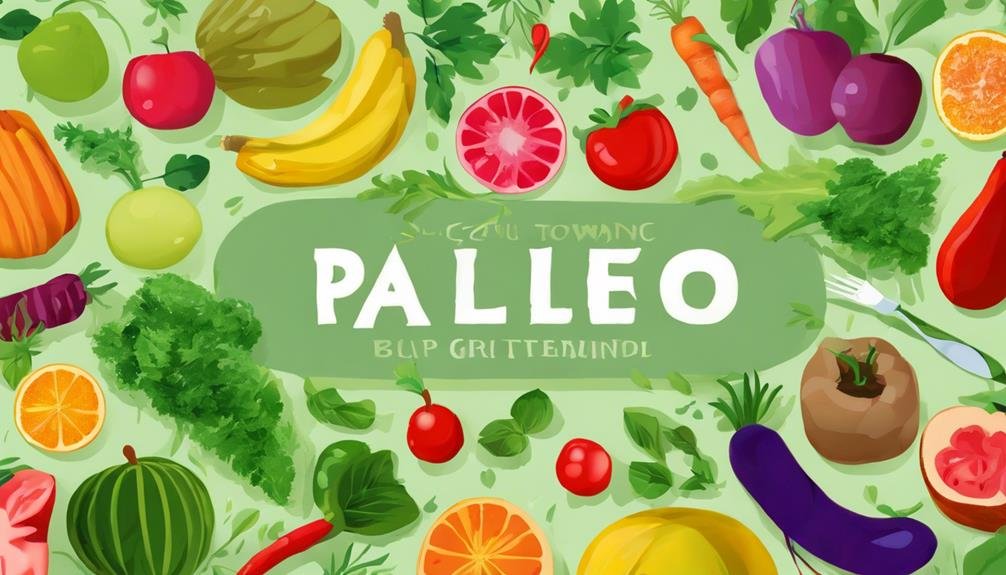
To understand the impact of the Paleo diet on cancer prevention, it's essential to consider its role in reducing carcinogenic factors within the body.
By following a Paleo diet rich in whole foods such as lean meats, fish, fruits, vegetables, nuts, and seeds, you're minimizing your exposure to potential carcinogens found in processed foods, additives, and preservatives. These whole foods are abundant in antioxidants, vitamins, and minerals that help combat oxidative stress and inflammation, two key factors in cancer development.
Furthermore, the Paleo diet promotes the consumption of organic and grass-fed products, reducing your intake of antibiotics, hormones, and pesticides commonly found in conventionally raised produce and livestock.
This reduction in harmful substances supports your body's natural detoxification processes and reduces the burden on your liver, a crucial organ in metabolizing carcinogens. By choosing Paleo-friendly options, you're actively working to decrease your exposure to cancer-causing agents and safeguarding your health in a proactive manner.
Impact on Insulin Sensitivity
In considering the impact of the Paleo diet on insulin sensitivity, it's crucial to recognize the significant role dietary choices play in regulating blood sugar levels. Here's how the Paleo diet can positively affect your insulin sensitivity:
- Lower Glycemic Load: By focusing on whole foods like lean meats, vegetables, fruits, and nuts, the Paleo diet helps reduce the overall glycemic load of your meals, preventing spikes in blood sugar levels.
- Increased Fiber Intake: With an emphasis on fiber-rich foods such as fruits and vegetables, the Paleo diet promotes better digestion and slows down the absorption of sugar into the bloodstream, improving insulin sensitivity.
- Balanced Macronutrients: The Paleo diet encourages a balance of protein, healthy fats, and carbohydrates from whole foods, supporting stable blood sugar levels and insulin response.
- Reduced Inflammation: By avoiding processed foods and refined sugars, the Paleo diet helps lower inflammation levels in the body, which can enhance insulin sensitivity and reduce the risk of chronic diseases like cancer.
Mitochondrial Health and Cancer
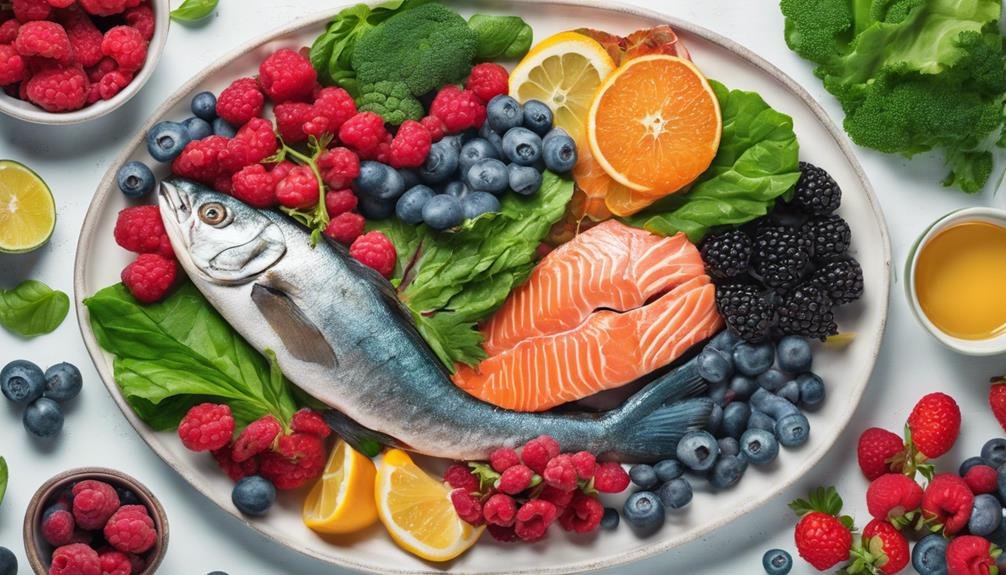
Considering the impact of the Paleo diet on insulin sensitivity sheds light on the interconnectedness of dietary choices and physiological processes. Mitochondrial health plays a crucial role in cancer development and progression. Mitochondria are the energy powerhouses of cells, responsible for producing adenosine triphosphate (ATP) through oxidative phosphorylation. Disruptions in mitochondrial function can lead to an imbalance in cellular energy metabolism, promoting cancer growth.
Research suggests that the Paleo diet, rich in whole foods like lean meats, fish, fruits, and vegetables, can support mitochondrial health. By providing essential nutrients and antioxidants, this diet may help maintain the integrity of mitochondria and reduce the risk of mutations that could lead to cancer formation.
Furthermore, the avoidance of processed foods and refined sugars in the Paleo diet may prevent mitochondrial damage caused by oxidative stress.
Incorporating the Paleo diet into your lifestyle may contribute to preserving mitochondrial health and potentially lowering the risk of cancer development. However, more research is needed to fully understand the specific mechanisms by which this diet influences mitochondrial function and cancer prevention.
Protein Quality and Cancer Prevention
Enhancing your understanding of the relationship between protein quality and cancer prevention is essential for making informed dietary choices. When it comes to cancer prevention, the quality of the protein you consume plays a crucial role. Here are four key points to consider:
- Complete Proteins: Opt for animal-based proteins like meat, fish, and eggs as they contain all essential amino acids necessary for the body's functions.
- Lean Sources: Choose lean protein sources to reduce the intake of saturated fats, which have been linked to an increased risk of certain cancers.
- Plant-Based Options: Incorporate plant-based proteins like legumes, nuts, and seeds into your diet to provide a variety of nutrients and antioxidants that can help prevent cancer.
- Avoid Processed Meats: Minimize the consumption of processed meats such as bacon, sausages, and deli meats, as they've been associated with a higher risk of developing cancer.
Practical Tips for Paleo Eating
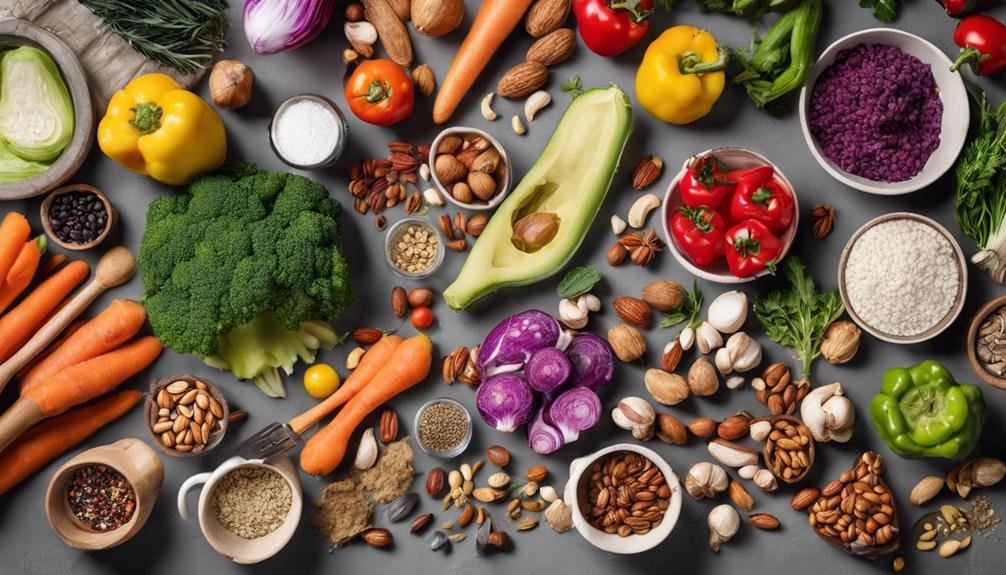
When following the Paleo diet, practical tips can help you navigate your food choices effectively. Firstly, focus on consuming whole, unprocessed foods such as lean meats, fish, fruits, vegetables, nuts, and seeds. These foods provide essential nutrients while avoiding additives and preservatives that may increase cancer risk.
Secondly, prioritize organic options to minimize exposure to pesticides and harmful chemicals. Additionally, opt for grass-fed and pasture-raised animal products to ensure higher nutrient content and healthier fat profiles. Remember to drink plenty of water and limit sugary beverages to reduce inflammation and support overall health.
Plan your meals ahead of time to avoid impulsive food choices and ensure a balanced intake of protein, healthy fats, and carbohydrates. Lastly, listen to your body's hunger and fullness cues to prevent overeating and promote a healthy weight, which is crucial for cancer prevention. By incorporating these practical tips, you can optimize your Paleo diet for maximum health benefits.
Incorporating Paleo for Cancer Prevention
To optimize your dietary choices for cancer prevention, incorporating the principles of the Paleo diet can be a strategic approach. Research suggests that following a Paleo lifestyle may help reduce the risk of cancer by promoting overall health and addressing key factors that contribute to cancer development.
Here are four ways you can integrate Paleo principles into your routine for cancer prevention:
- Focus on Whole Foods: Emphasize consuming fresh fruits, vegetables, lean proteins, nuts, and seeds to provide your body with essential nutrients and antioxidants that support a healthy immune system.
- Limit Processed Foods: Avoid processed foods high in sugar, unhealthy fats, and additives that may promote inflammation and contribute to cancer growth.
- Balanced Macronutrients: Strive for a balanced intake of proteins, healthy fats, and carbohydrates to support optimal cellular function and reduce the risk of insulin resistance, a factor associated with cancer development.
- Hydration: Stay well-hydrated by drinking plenty of water to help flush out toxins and support overall cellular health, crucial for cancer prevention.
Frequently Asked Questions
Can the Paleo Diet Cure Cancer?
The Paleo diet isn't a cure for cancer. While some research suggests that a diet rich in whole foods like fruits, vegetables, and lean proteins may help reduce cancer risk, claims of curing cancer with specific diets lack scientific evidence. It's essential to consult healthcare professionals for evidence-based cancer treatments.
The Paleo diet can be a part of a healthy lifestyle, but it's not a standalone treatment for cancer.
Are There Any Potential Side Effects of the Paleo Diet?
When considering the potential side effects of the paleo diet, it's essential to note that while this diet emphasizes whole foods and eliminates processed items, it may lead to nutrient deficiencies if not carefully planned.
Lack of grains can reduce fiber intake, impacting gut health. Also, increased meat consumption may elevate saturated fat levels.
Monitoring nutrient intake and consulting a healthcare provider can help mitigate these risks and ensure a balanced approach to the paleo diet.
Can Children Follow the Paleo Diet for Cancer Prevention?
While it may seem ironic, children can indeed follow the Paleo diet for potential cancer prevention. This diet focuses on whole foods, lean proteins, fruits, and vegetables, which can contribute to an overall healthy lifestyle.
However, it's crucial to ensure that children receive all necessary nutrients for proper growth and development. Consulting with a healthcare provider or nutritionist is recommended to tailor the diet to meet a child's specific needs.
How Does the Paleo Diet Impact Cholesterol Levels?
The Paleo diet may impact cholesterol levels positively. By focusing on whole foods like lean meats, fruits, vegetables, and nuts, it can lead to reduced intake of processed foods high in trans fats and refined sugars. Studies suggest that this dietary approach may help lower LDL ("bad") cholesterol levels and increase HDL ("good") cholesterol levels. However, individual responses to the Paleo diet can vary, and it's important to consult with a healthcare provider for personalized guidance.
Is It Possible to Be Vegetarian and Follow the Paleo Diet for Cancer Prevention?
Yes, it's possible to be vegetarian and follow a modified version of the paleo diet for cancer prevention.
You can focus on consuming plant-based foods like fruits, vegetables, nuts, and seeds while avoiding processed foods and grains.
Although the traditional paleo diet includes animal products, adapting it to emphasize plant-based options can still provide beneficial nutrients and antioxidants that may help reduce cancer risk.
Consulting with a healthcare provider or dietitian is recommended for personalized guidance.
Conclusion
Incorporating the Paleo Diet into your lifestyle can significantly reduce your risk of developing cancer. Studies have shown that individuals following a Paleo Diet have a 26% lower risk of developing colorectal cancer compared to those on a standard Western diet. By focusing on nutrient-dense foods, antioxidants, and lean proteins, you can support your cellular health, reduce inflammation, and promote overall well-being. Make the switch to Paleo today and take control of your health.
